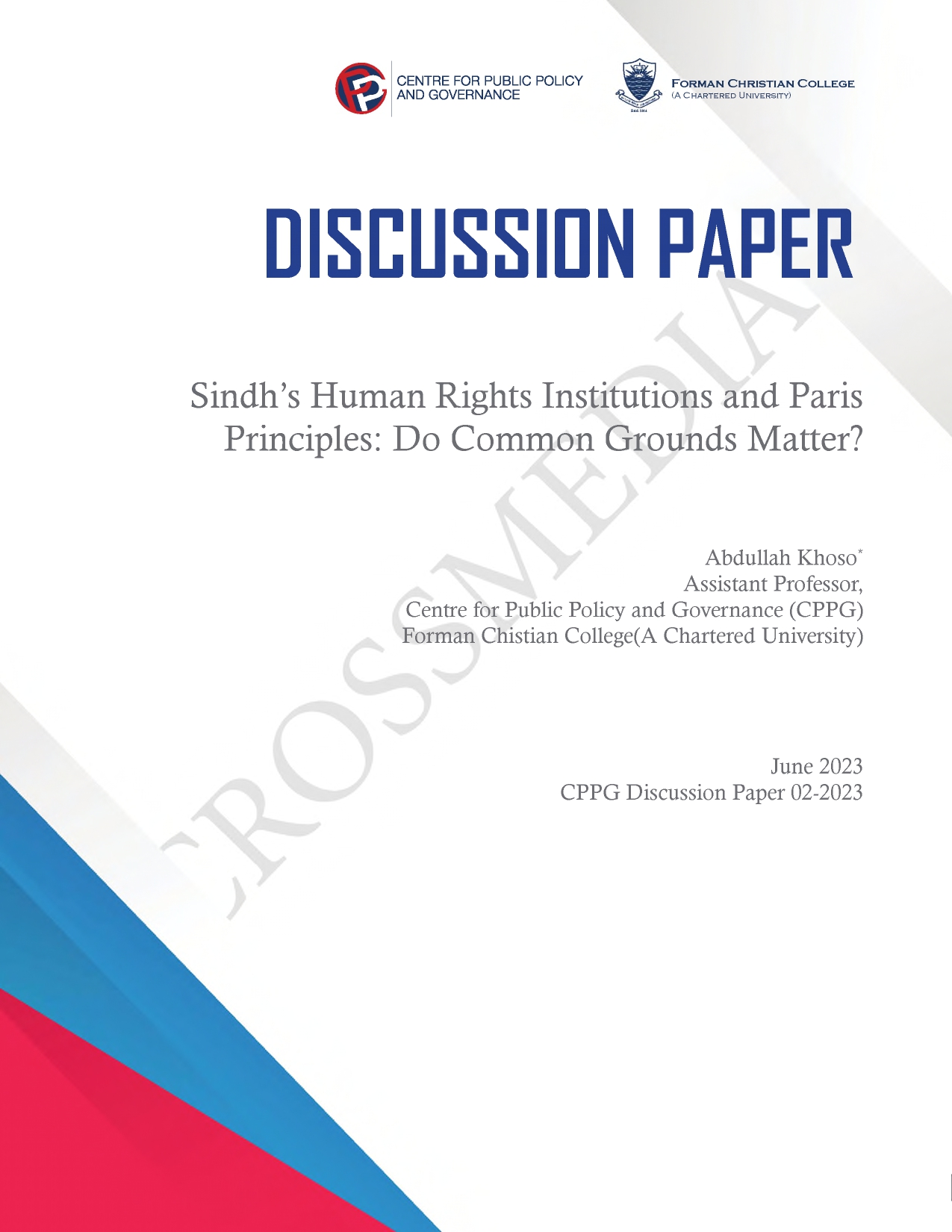
Sindh’s Human Rights Institutions and Paris Principles: Do Common Grounds Matter?
Introduction
Pakistan is the fifth most populous country in the world. It has an estimated 242 million people in four provinces (Balochistan, Khyber Pakhtunkhwa (KP), Punjab, and Sindh) and additional federal regions.1,2 Quasi-judicial human rights institutions (HRIs) just recently began to defend the rights of citizens guaranteed by both the Pakistani Constitution and international treaties. The passage of the 18th Constitutional Amendment (2010), led to the removal of the Concurrent List and empowered the legislative capacity of the provincial legislatures, on human rights. Taking a cue from this the federal legislator created the National Commission on Human Rights in 2012. Among the four provinces, Sindh appears to have taken the lead and created a few human rights institutions with mensional and multilateral. These are the Sindh Child Protection Authority (SCPA), established under the Sindh Child Protection Authority Act (SCPAA), 2011, the Sindh Human Rights Commission (SHRC), established in 2013 under the Sindh Protection of Human Rights Act (SPHRA), 2011, and the Sindh Commission on the Status of Women (SCSW), established under the Sindh Commission on the Status of Women Act (SCSWA), 2015. In 2016, the SCPAA’s Rules of Business (the Sindh Child Protection Sindh is the second-largest province of Pakistan and has 47.85 million residents. The three provincial HRIs—the SCPA, the SHRC, and the SCSW are significant since they have broad responsibilities for both civil and political rights as well as social, economic, and cultural rights. The SCPAA, the SPHRA, and the SCSWA are founding laws (sometimes referred to as organic laws) that give the HRIs directives. The three HRIs must take special measures to assert their authority and safeguard residents from abuse, exploitation, and violation given the size of the population and the scale of human rights violations Authority Rules of 2016) were framed. The Authority after its establishment had constituted three child protection institutions in Karachi, Sukkur, and Hyderabad. The SHRC instituted its first regional office in 2021 in Sukkur. The Sindh Commission on the Status of Women Act, 2015 (SCSWA) authorized the establishment of the Sindh Commission on the Status of Women (SCSW)
Citations

